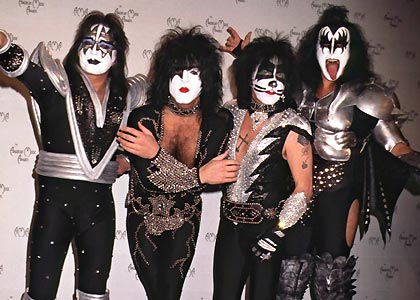If your number one goal in life is getting rich, becoming an author is not a great choice of occupation. The average writer in the USA, according to ZipRecruiter, is $39,179.
To put that in perspective, it’s about $5,000 more than the average income of a garbage collector, but about $12,000 less than the average plumber.
But there are exceptions. And, as my brother-in-law George reminds me every time he visits, it’s always the exception that is interesting.
George likes to start his day with a cup of coffee and the morning paper. He has a curious mind, and he likes to share bits of trivia that he picks up from whatever it is that he’s reading at the moment. So when he’s visiting and we are at the breakfast table, it’s not unusual for him to ask a question that might otherwise seem to have come from the blue.
Today, it was this one: “Who is the author who is worth more than a billion dollars even after giving away $170 million in 2012?”
Now before you throw out the obvious answer, tell me this:
Do you know who Paulo Coelho is?
He’s a Brazilian novelist, musician, and theater director. His first book, published in 1982, had only modest success. But then he took a trip around Spain and chronicled it in The Pilgrimage. And he followed that up with The Alchemist, which was not only a huge international bestseller but the most translated book by a living author. With a net worth topping $500 million, Coelho is near the top of the world’s richest authors.
What about Barbara Taylor Bradford? Do you know who she is?
I’m not familiar with anything she’s written, but I understand that A Woman of Substance, her debut novel (at the age of 46) has sold 35 million copies since it was published in 1979. In addition to 28 additional novels (all bestsellers), Bradford has authored a series of children’s books and a series of interior design books. She’s worth about $300 million.
Or how about Jeffrey Archer?
This English author (and politician) has sold more than 250 million copies of his books internationally. Part of his fame, I have read, came from the fact that he spent 5 years in prison on some charge of “perjury and perverting the court of justice,” which he monetized by writing a series of diaries about the experience. Archer has a net worth of $200 million.
Now – unless you are a student of African literature – I’m almost positive you’ve never heard of David Oyedepo.
A Nigerian author of inspirational books, Oyedepo is his country’s richest cleric. He’s written more than 50 books of his own, and also owns Dominion Publishing House, which publishes faith-based works by other writers. Oyedepo’s net worth is estimated to be about $150 million.
Coelho, Bradford, Archer, and Oyedepo – these super-rich but little known (to the likes of you and me) writers are high up on the net worth totem pole. But most of the spaces at the top are filled by names we know very well:
You know John Grisham…
He has a net worth of $300 million, and he earns an average of $50 million a year – in part because his books are tailor-made to be produced as movies. I’d expect to see him steadily moving up the net-worth list.
And Danielle Steel…
Steel has, without a doubt, the most colorful marital history of her peers. Following a divorce from her wealthy first husband, she had a short marriage to a man who was later convicted of rape, followed by an equally short marriage to a drug addict. And that wasn’t the end of it. She’s been married and divorced at least two more times. Meanwhile, she has written more than 70 bestselling novels… and has a net worth of $385 million.
And Stephen King…
A specialist in the literary genres of horror, fantasy, and suspense, King has written beautifully and successfully for films, too. (He has also written a great book on writing called On Writing.)He has sold more than 350 million copies of his novels around the globe, and has a net worth of more than $400 million.
And James Patterson (who is almost – but not quite – our winner)…
Patterson has sold more than 300 million copies of his books. Most notable is his series featuring Alex Cross, a fictional psychologist and crime solver. He is also known for his campaign to make reading a national priority, and for his support of colleges and universities, school libraries, and independent bookstores. (He has donated millions in grants and scholarships.) Patterson has a net worth of $750 million, and continues to earn about $90 million per year.
So who is the richest author in the world? JK Rowling, of course!
Was Rowling your guess? She was mine. How could she not be?
She is the author of the Harry Potter industry, which began with books and then went on to include movies, games, merchandise, endorsements, and even a 2-part Broadway play. With a net worth of more than $1 billion – even after giving away $170 million of it in 2012 – Rowling currently holds the title. READ MORE







